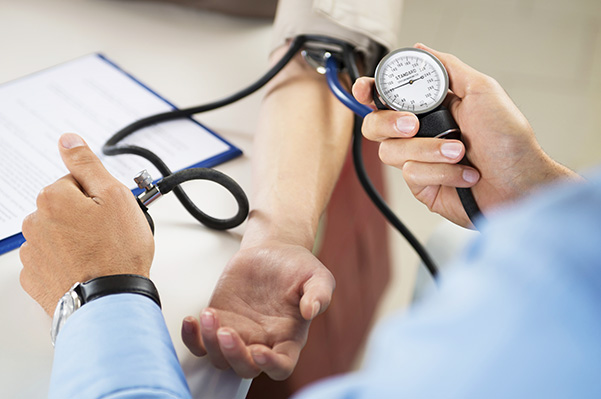We all know that high blood pressure or hypertension can cause heart attack and stroke. But are you aware that low blood pressure or hypotension can also cause the same? Whether your blood pressure is high or low, there are some dangers associated with it. In this article, we will focus on the things that can cause hypotension.
According to doctors, hypotension is blood pressure that is lower than 90/60 mmHg — normal blood pressure is between 120/80 mmHg and 90/60 mmHg.
If you are suffering from hypotension, it’s not unlikely for you to feel dizzy or lightheaded, or like you are about to faint. Experts say that it’s because of the fact that having low blood pressure can keep the brain from being supplied with enough blood that contains oxygen, most especially when you are standing up.
Other symptoms associated with hypotension include blurred vision, chest pain, nausea and increased thirst — your body is signaling you to drink plenty of water to increase blood volume and ultimately blood pressure.
Earlier, it was mentioned that hypotension, just like high blood pressure, can increase a person’s risk of heart attack and stroke. That can happen if the blood pressure is too low to provide the heart and brain with oxygen-rich blood. Certainly, it’s of utmost importance for you to have blood pressure that’s within the normal range.
Here are some risk factors for hypotension — things that can cause you to have low blood pressure:
A Sedentary Lifestyle
Do you spend most of your time lying in bed or sitting on the couch? Then it’s not unlikely for your blood pressure to drop to abnormally low levels due to lack of physical activity.
However, leading a sedentary lifestyle may eventually cause hypertension rather than hypotension. That’s because not being physically active can cause you to become overweight, which is a risk factor for heart disease — everyone is aware that high blood pressure is linked to heart disease.
Exposure to Excessive Heat
Your body will try to do everything in its power to keep its temperature normal. When you’re exposed to excessive heat, your blood vessels dilate in order to encourage heat to escape the body. Unfortunately, the dilatation of the blood vessels can result in low blood pressure.
There is another way your body cools itself when exposed to excessive heat, and that’s sweating — it’s something that can lead to hypotension, and the reason why is discussed next.
Dehydration
Various reasons exist why it’s important for you to stay properly hydrated, and one of those is to keep the blood volume normal. With a normal blood volume, the blood pressure stays within the optimal range.
If you’re dehydrated because of failure to drink plenty of water or due to excessive sweating, your blood volume drops, and this is the reason why it’s not unlikely for the blood pressure to drop as well. Make sure that you drink about 2 liters of water (more if you tend to sweat a lot) to keep your body properly hydrated.
Too Much Alcohol
Initially, drinking lots of alcohol can increase your blood pressure as well as your heart rate. But when the depressing effects of alcohol kicks in, high blood pressure then becomes low blood pressure all of a sudden.
Did you know that alcohol has dehydrating properties? That’s because it has diuretic properties — it can cause you to pee more often, which can result in dehydration especially if you are not drinking enough water. And just like what’s tackled earlier, dehydration is something that can cause hypotension.
Heart Disease
High blood pressure is commonly linked to heart disease. Did you know that hypotension is also something that can be associated with heart disease? And that’s why it is a good idea for you to be seen by a doctor if it seems like your blood pressure is always low — it can be due to a problem concerning the heart.
With heart disease, the heart muscles can become weakened, keeping your heart from pumping blood with enough power to make sure that your organs are supplied with oxygenated blood.
There are a bunch of other risk factors for hypotension. Pay your doctor a visit if you are getting low blood pressure reading at home and experiencing some symptoms associated with hypotension.
